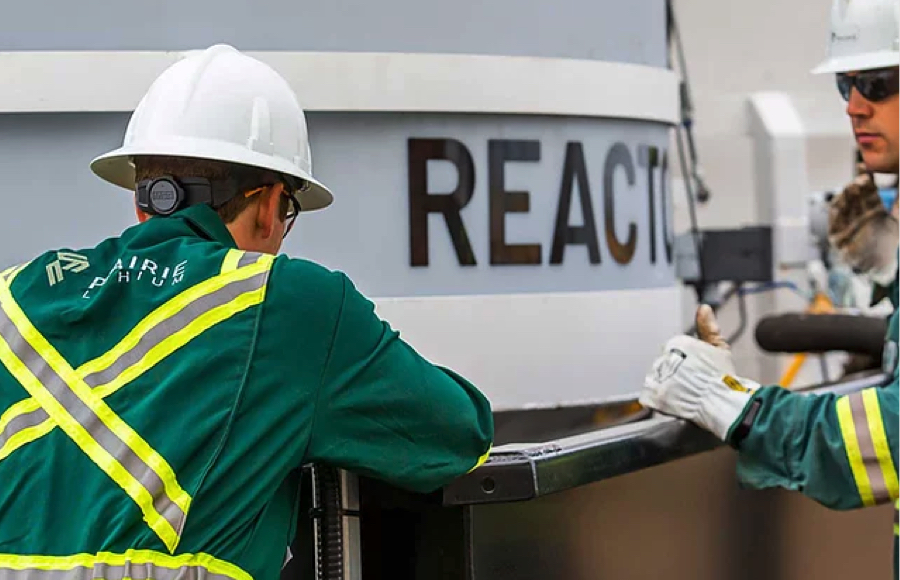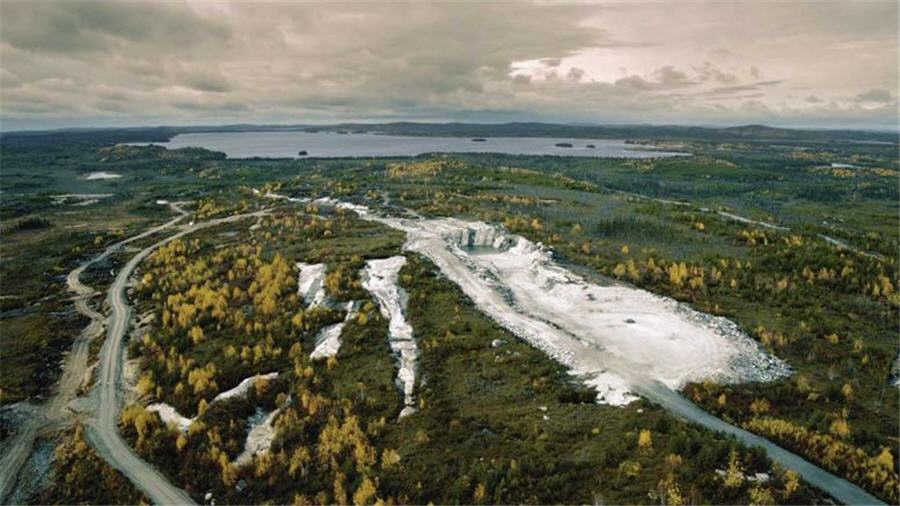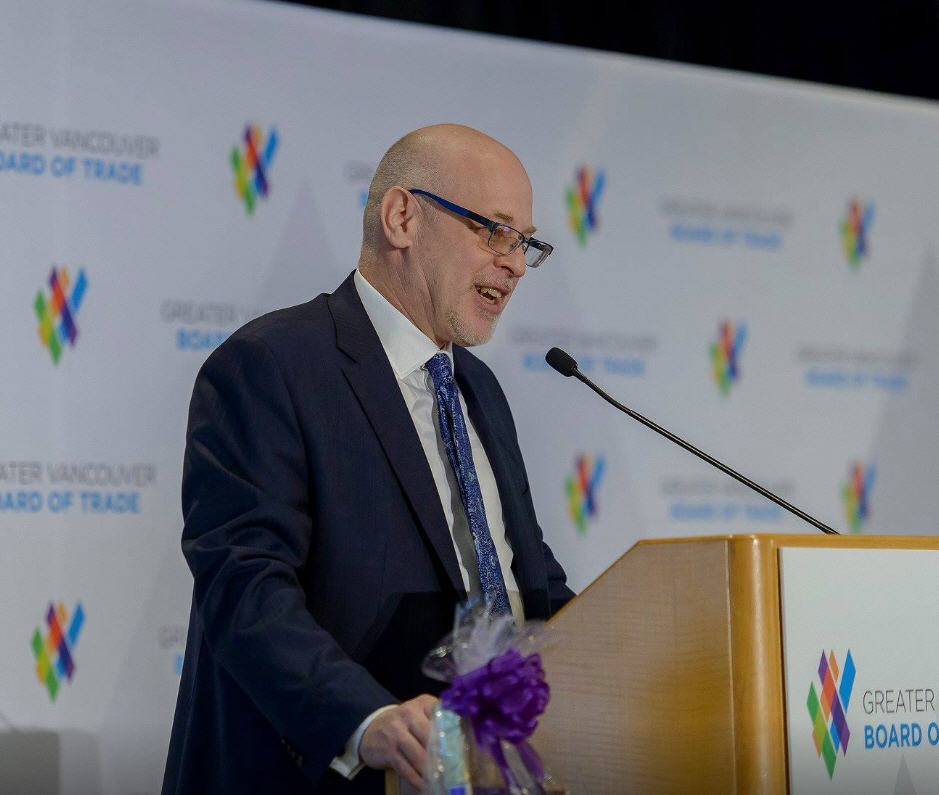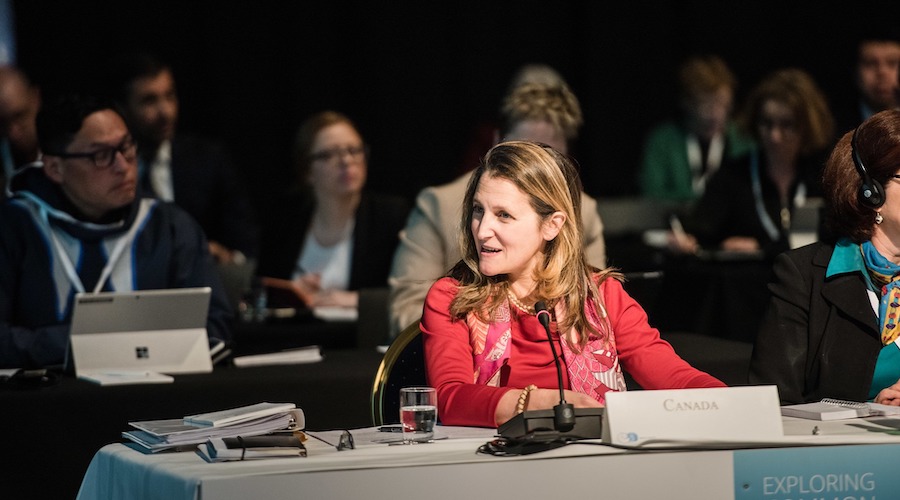Reuters | November 4, 2022 |

Saskatchewan produces a large volume of lithium-enriched brine water.
(Image courtesy of Prairie Lithium.)
(The opinions expressed here are those of the author, Andy Home, a columnist for Reuters.)

Canada has just upped the ante in the global competition to secure critical minerals.
The Canadian government this week ordered Chinese companies to divest their holdings in three Canadian-listed junior mining companies planning to develop lithium deposits.
The ban comes within days of Canada announcing a tougher policy on investment in the minerals sector by state-owned entities, particularly those from China, which dominates the processing of key energy transition metals such as lithium, cobalt and rare earths.
The order to divest follows what the government said was a “multi-step national security review process, which involves rigorous scrutiny by Canada’s national security and intelligence community.”
It promised to continue to “act decisively when investments threaten our national security and our critical minerals supply chains, both at home and abroad.”
The move marks a hardening of geopolitical battle-lines in the metals sector and raises the question of what Canada and its metallic allies might do next in the name of national security.
(The opinions expressed here are those of the author, Andy Home, a columnist for Reuters.)

Canada has just upped the ante in the global competition to secure critical minerals.
The Canadian government this week ordered Chinese companies to divest their holdings in three Canadian-listed junior mining companies planning to develop lithium deposits.
The ban comes within days of Canada announcing a tougher policy on investment in the minerals sector by state-owned entities, particularly those from China, which dominates the processing of key energy transition metals such as lithium, cobalt and rare earths.
The order to divest follows what the government said was a “multi-step national security review process, which involves rigorous scrutiny by Canada’s national security and intelligence community.”
It promised to continue to “act decisively when investments threaten our national security and our critical minerals supply chains, both at home and abroad.”
The move marks a hardening of geopolitical battle-lines in the metals sector and raises the question of what Canada and its metallic allies might do next in the name of national security.
Protecting the pipeline
The three impacted Canadian companies – Power Metals Corp, Ultra Lithium Inc and Lithium Chile Inc – are sitting on lithium deposits in Canada, Argentina and Chile respectively.
Power Metals’ properties in Ontario also contain tantalum and caesium, both of which are also classified as critical minerals by Canada and the United States.
All are next-generation projects, part of a growing pipeline needed to feed the world’s hunger for lithium.
And all have recently announced strategic investments by Chinese players offering not just money but processing expertise and off-take commitments.
Sinomine, one of the world’s largest rare earth producers, took a 5.7% stake in Power Metals for C$1.5m in a January fund-raising round.
Zangge Mining Co, a major Chinese lithium and potash producer, lifted its interest in Ultra Lithium to 14.2% in May and in June entered into an agreement to finance development of the Laguna Verde lithium project in Argentina.
Chengxin Lithium used a private placement by Lithium Chile in May to boost its stake to 19.4% for C$28 million.
All three Chinese companies have fallen foul of Canada’s newly beefed-up Investment Canada Act and must now divest their holdings.
The three abandoned brides will have to find new partners with the government proviso that suitors “share our interests and values.”
Widening the net
Canada’s new policy on critical minerals investment is wide-ranging and far-reaching.
It’s not just China’s state-owned players that will come in for extra scrutiny, but also any private investors “assessed as being closely tied to, subject to influence from, or who could be compelled to comply with extrajudicial direction from foreign governments.”
The policy covers not just mining but all stages of the minerals processing chain.
It extends, most obviously in the case of Ultra Lithium and Lithium Chile, to overseas assets as well as domestic.
Canada’s critical minerals list, updated in March this year, is extensive, covering not just the esoteric rare earths family and energy-transition inputs such as lithium, cobalt and nickel but also mainstream industrial metals such as aluminium, copper and zinc.
These are currently highly globalised markets, pivoting around China as the world’s largest user of industrial metals.
Canada, for example, has for many years been a supplier of mined copper concentrates to China, shipping 430,000 tonnes last year.
Such mine off-take deals may not be immune from Canada’s national security considerations.
“We will need to be very thoughtful going forward about what we are willing to allow,” said Canadian Natural Resources Minister Jonathan Wilson in a June interview with the Globe and Mail. “It is not just true of ownership, but I think we also have to be looking at things like long-term off-take agreements,” he added.
Canada’s overriding priority, Wilson explained, is one of “protecting itself in an area that is clearly strategic and ensuring that those supply chains will be robust for our allies.”
Metal bloc
Canada’s clamp-down on Chinese investment in critical minerals should be seen in the context of an emerging metallic NATO of like-minded countries looking to reduce their dependence on the China and Russia.
The Minerals Security Partnership (MSP), launched in June this year, includes Australia, Canada, Finland, France, Germany, Japan, the Republic of Korea, Sweden, Britain, the United States, and the European Commission.
The nascent alliance is still fractious.
The United States’ Inflation Reduction Act, linking electric vehicle subsidies to domestically produced metals, has infuriated both the European Union and South Korea.
Heated negotiations are currently taking place between US Trade Representative Katherine Tai and the European Commission, which is looking for some form of exemption for friendly countries.
Assuming the current spat can be smoothed out, there is the clear potential for other members to halt Chinese investment into their respective mineral sectors.
Australia is already doing so. In April it blocked an attempt by the Chinese state-owned Baogang Group to take a 13% share in Northern Minerals, which owns the Browns Range rare earths deposit in Western Australia.
In the same month it also blocked Yibin Tianyi Lithium Industry from taking a stake in AVZ Minerals, which has lithium projects, with associated tin and tantalum, in the Democratic Republic of Congo.
Canada’s definition of domestic critical resources to include any company listed on its stock exchange will resonate amongst both the heavyweight mining companies in Britain’s FTSE-100 and the many junior resource companies listed on London’s AIM market.
All will need to heed the Canadian government’s advice to its companies that they “carefully review their investment plans to identify any potential connections to (…) or entities linked to or subject to influence by hostile or non-likeminded regimes or states.”
The metallic uncoupling of China and the rest of the world has just entered a new, more aggressive phase as governments overrule free markets to defend their supply chains.
Canada’s three-pronged attack on Chinese investment is just the start of the next chapter in the great critical minerals game of nations.
($1 = 1.3736 Canadian dollars)
(Editing by David Evans)
Livent looks to Canada for lithium growth opportunities – CEO
Reuters | November 3, 2022
Nemaska’s Whabouchi lithium deposit in Quebec’s James Bay region, 300 km northwest of Chibougamau. (Credit: Nemaska Lithium)
Lithium producer Livent Corp is eyeing acquisitions in Canada and other countries as it looks to boost its production and processing of the metal used to make electric vehicle batteries, its chief executive told Reuters.

Already one of the top global producers of the metal, Livent has expansions underway across the globe, including Canada, but wants to grow more to meet rising demand for the metal from the electric vehicle (EV) and renewable energy industries.

“We see Canada as a core part of our expansion capacity,” Paul Graves, Livent’s CEO, said in a Thursday interview. “We have to get bigger. We can’t just sit still.”
The Philadelphia-based company last month named Sarah Maryssael as its chief strategy officer to pursue potential lithium deals across the globe. Livent poached Maryssael from Tesla Inc, where she oversaw the automaker’s lithium, cobalt and nickel sourcing.
Related: Livent in deal to buy Nemaska, extend Tesla contract
Livent earlier this week posted better-than-expected quarterly earnings and raised the midpoint of its annual forecast, though the company trimmed the forecast’s top end due to inflation concerns.
Livent has been steadily growing in Canada since forming a joint venture in 2020 to buy Quebec’s Nemaska lithium project, which is now expected to open by 2025 and produce 34,000 tonnes of lithium. Graves said Nemaska could eventually produce 100,000 tonnes annually, but Livent would still seek other growth opportunities in Canada.
Graves, CEO since 2018, added that Livent is interested in deals in Argentina, where it operates a lithium brine project, and Australia. However, Livent would not buy a lithium mine without having adequate processing capacity nearby, he added.
Livent counts General Motors Co, BMW and Tesla as key customers.
Canada’s government has been generally supportive of EV minerals projects, although on Wednesday it ordered three Chinese companies to divest from Canadian critical mining projects, citing national security concerns.
(By Ernest Scheyder; Editing by Richard Pullin)
Reuters | November 3, 2022

Nemaska’s Whabouchi lithium deposit in Quebec’s James Bay region, 300 km northwest of Chibougamau. (Credit: Nemaska Lithium)
Lithium producer Livent Corp is eyeing acquisitions in Canada and other countries as it looks to boost its production and processing of the metal used to make electric vehicle batteries, its chief executive told Reuters.

Already one of the top global producers of the metal, Livent has expansions underway across the globe, including Canada, but wants to grow more to meet rising demand for the metal from the electric vehicle (EV) and renewable energy industries.

“We see Canada as a core part of our expansion capacity,” Paul Graves, Livent’s CEO, said in a Thursday interview. “We have to get bigger. We can’t just sit still.”
The Philadelphia-based company last month named Sarah Maryssael as its chief strategy officer to pursue potential lithium deals across the globe. Livent poached Maryssael from Tesla Inc, where she oversaw the automaker’s lithium, cobalt and nickel sourcing.
Related: Livent in deal to buy Nemaska, extend Tesla contract
Livent earlier this week posted better-than-expected quarterly earnings and raised the midpoint of its annual forecast, though the company trimmed the forecast’s top end due to inflation concerns.
Livent has been steadily growing in Canada since forming a joint venture in 2020 to buy Quebec’s Nemaska lithium project, which is now expected to open by 2025 and produce 34,000 tonnes of lithium. Graves said Nemaska could eventually produce 100,000 tonnes annually, but Livent would still seek other growth opportunities in Canada.
Graves, CEO since 2018, added that Livent is interested in deals in Argentina, where it operates a lithium brine project, and Australia. However, Livent would not buy a lithium mine without having adequate processing capacity nearby, he added.
Livent counts General Motors Co, BMW and Tesla as key customers.
Canada’s government has been generally supportive of EV minerals projects, although on Wednesday it ordered three Chinese companies to divest from Canadian critical mining projects, citing national security concerns.
(By Ernest Scheyder; Editing by Richard Pullin)
Industry groups welcome C$10 billion in Ottawa’s budget update
Staff Writer | November 4, 2022 |

Mining Association of Canada president and CEO Pierre Gratton addressed the Greater Vancouver Board of Trade (GVBOT) on Wednesday, January 23 –
Staff Writer | November 4, 2022 |

Mining Association of Canada president and CEO Pierre Gratton addressed the Greater Vancouver Board of Trade (GVBOT) on Wednesday, January 23 –
Image courtesy of the Greater Vancouver Board of Trade
Canada’s major mining industry group and a green energy think tank are welcoming nearly C$10 billion spread over tax credits for clean technology, mining project approval improvements, innovation research and industry training announced in a federal budget update.

Ottawa is offering C$6.7 billion in tax credits over five years for up to 30% of investments in clean technologies such as battery storage, electric industrial vehicles and small nuclear reactors, according to the Liberal government’s fall economic statement issued Thursday.
It also gives C$1.28 billion over six years to several federal departments, including the Impact Assessment Agency, to speed the project approvals process; C$962.2 million over eight years to modernize the National Research Council; and C$802.1 million over three years for the Youth Employment and Skills Strategy.
“This investment tax credit will serve to benefit Canada’s mining industry in several ways as the deployment of zero emission vehicles and non-green-house gas emission solutions is accelerating across our sector,” Pierre Gratton, president and chief executive officer of the Mining Association of Canada, said in a news release. “This tax credit will support our sector in accomplishing its climate action priorities.”
Mark Zacharias, executive director at Vancouver-based Clean Energy Canada, a research group at Simon Fraser University, said the tax credit was a suitable response to the United States boosting its own clean energy industries with $1.7 billion in incentives in recent legislation by the Biden administration.
“Canada simply had to respond,” Zacharias said in a statement after the budget update. “It’s a recognition of a global reality in which our largest trading partners are mapping out their clean industrial futures and planting flags.”
Canada is among the Western nations trying to boost and protect the critical mineral industries it needs for a transition to clean energy that is estimated to cost trillions of dollars globally. Ottawa announced a national critical minerals strategy in April, which it plans to update by year’s end, and toughened foreign investment rules last month. This week it ordered three companies based in China, which controls some 80% of rare earth elements in global markets, to divest from Canadian projects.
Federal Natural Resources Minister Jonathan Wilkinson had said on Oct. 25 that Canada would respond to the US tax incentives in its Inflation Reduction Act. Wilkinson, who served on the board of Hydrogen and Fuel Cells Canada, also spoke about the need to promote the hydrogen fuel industry in Canada.
Zacharias and Gratton welcomed the budget update’s increase to 40% of a previously announced investment tax credit for clean hydrogen.
Wilkinson and provincial counterparts such as Ontario Mines Minister George Pirie have said how Canada must cut its mining approval times. Gratton criticized the federal Impact Assessment Agency for an “unsatisfactory job” reviewing projects.
“It is imperative that more knowledgeable subject-matter experts, rather than just more staff, be hired,” Gratton said. “Canada has had tremendous success attracting new investment into the battery value chain on the promise of a reliable supply of battery materials, and now we have to deliver.”
Zacharias said Ottawa’s increased clarity on its policies to foster clean energy innovation and improve training are needed to improve Canada’s competitiveness.
“The idea that climate action is also economic action has never been truer,” Zacharias said. “We’ve had climate plans with economic benefits. This is economic planning with climate benefits.”
Canada’s major mining industry group and a green energy think tank are welcoming nearly C$10 billion spread over tax credits for clean technology, mining project approval improvements, innovation research and industry training announced in a federal budget update.

Ottawa is offering C$6.7 billion in tax credits over five years for up to 30% of investments in clean technologies such as battery storage, electric industrial vehicles and small nuclear reactors, according to the Liberal government’s fall economic statement issued Thursday.
It also gives C$1.28 billion over six years to several federal departments, including the Impact Assessment Agency, to speed the project approvals process; C$962.2 million over eight years to modernize the National Research Council; and C$802.1 million over three years for the Youth Employment and Skills Strategy.
“This investment tax credit will serve to benefit Canada’s mining industry in several ways as the deployment of zero emission vehicles and non-green-house gas emission solutions is accelerating across our sector,” Pierre Gratton, president and chief executive officer of the Mining Association of Canada, said in a news release. “This tax credit will support our sector in accomplishing its climate action priorities.”
Mark Zacharias, executive director at Vancouver-based Clean Energy Canada, a research group at Simon Fraser University, said the tax credit was a suitable response to the United States boosting its own clean energy industries with $1.7 billion in incentives in recent legislation by the Biden administration.
“Canada simply had to respond,” Zacharias said in a statement after the budget update. “It’s a recognition of a global reality in which our largest trading partners are mapping out their clean industrial futures and planting flags.”
Canada is among the Western nations trying to boost and protect the critical mineral industries it needs for a transition to clean energy that is estimated to cost trillions of dollars globally. Ottawa announced a national critical minerals strategy in April, which it plans to update by year’s end, and toughened foreign investment rules last month. This week it ordered three companies based in China, which controls some 80% of rare earth elements in global markets, to divest from Canadian projects.
Federal Natural Resources Minister Jonathan Wilkinson had said on Oct. 25 that Canada would respond to the US tax incentives in its Inflation Reduction Act. Wilkinson, who served on the board of Hydrogen and Fuel Cells Canada, also spoke about the need to promote the hydrogen fuel industry in Canada.
Zacharias and Gratton welcomed the budget update’s increase to 40% of a previously announced investment tax credit for clean hydrogen.
Wilkinson and provincial counterparts such as Ontario Mines Minister George Pirie have said how Canada must cut its mining approval times. Gratton criticized the federal Impact Assessment Agency for an “unsatisfactory job” reviewing projects.
“It is imperative that more knowledgeable subject-matter experts, rather than just more staff, be hired,” Gratton said. “Canada has had tremendous success attracting new investment into the battery value chain on the promise of a reliable supply of battery materials, and now we have to deliver.”
Zacharias said Ottawa’s increased clarity on its policies to foster clean energy innovation and improve training are needed to improve Canada’s competitiveness.
“The idea that climate action is also economic action has never been truer,” Zacharias said. “We’ve had climate plans with economic benefits. This is economic planning with climate benefits.”
Canada to set up tax credits for clean tech, launch growth fund
Reuters | November 3, 2022 |

Canada’s Foreign Minister Chrystia Freeland. Photo by Freeland’s press office
Canada will introduce tax credits for clean technologies worth up to 30% of investment costs in a bid to close competitive gaps with the United States in scaling up green technologies, the government said on Thursday.

It will also launch a growth fund, first announced in April, by the end of the year with a capitalization of C$15 billion ($10.92 billion) to help mitigate the risks private investors take on when investing in new technologies and infrastructure.
The clean-tech tax credits will be offered for investors in net-zero technologies, battery storage and clean hydrogen, according to the so-called fall economic statement (FES) presented to the House of Commons by Finance Minister Chrystia Freeland.
The new green transition measures are “a step in the right direction helping Canada compete with the US on advanced clean manufacturing,” said Scott MacDougall, a senior advisor at the Pembina Institute, a clean energy think-tank.
However, it “falls short of what’s needed to put Canada on track to achieve its climate goals, missing major increased funding to support net-zero electricity generation and infrastructure,” he added.
Freeland last month promised an initial “response” to the US Inflation Reduction Act (IRA), which was signed into law by US President Joe Biden earlier this year and contains generous incentives for consumers and businesses to make the low-carbon transition.
Canada on Thursday proposed a 2% tax on corporate stock buybacks, similar to a measure in the IRA, that is meant to “encourage corporations to reinvest their profits in their workers and business,” the FES said.
The tax will generate an estimated C$2.1 billion over five years and will come into force on Jan 1, 2024.
“In terms of trying to foster business investments, I don’t think it’s well targeted,” said Robert Asselin, senior vice president of policy at the Business Council of Canada.
The government also promised an investment tax credit for hydrogen in next year’s budget, saying the cleanest producers would qualify to get back at least 40% of their investment, and Freeland promised more action on the green transition.
“These investments represent only a down payment on the work that lies ahead,” Freeland told lawmakers after she presented the document.
One of the investment offerings foreseen by the growth fund are so-called “contracts for difference”, which could help investors in carbon capture and storage mitigate the risk that a future government eliminates Canada’s carbon pricing system.
In next year’s budget, Canada will introduce new measures to increase advanced manufacturing competitiveness, the document said.
($1 = 1.3736 Canadian dollars)
(By Steve Scherer and Julie Gordon; Editing by Deepa Babington)
Reuters | November 3, 2022 |

Canada’s Foreign Minister Chrystia Freeland. Photo by Freeland’s press office
Canada will introduce tax credits for clean technologies worth up to 30% of investment costs in a bid to close competitive gaps with the United States in scaling up green technologies, the government said on Thursday.

It will also launch a growth fund, first announced in April, by the end of the year with a capitalization of C$15 billion ($10.92 billion) to help mitigate the risks private investors take on when investing in new technologies and infrastructure.
The clean-tech tax credits will be offered for investors in net-zero technologies, battery storage and clean hydrogen, according to the so-called fall economic statement (FES) presented to the House of Commons by Finance Minister Chrystia Freeland.
The new green transition measures are “a step in the right direction helping Canada compete with the US on advanced clean manufacturing,” said Scott MacDougall, a senior advisor at the Pembina Institute, a clean energy think-tank.
However, it “falls short of what’s needed to put Canada on track to achieve its climate goals, missing major increased funding to support net-zero electricity generation and infrastructure,” he added.
Freeland last month promised an initial “response” to the US Inflation Reduction Act (IRA), which was signed into law by US President Joe Biden earlier this year and contains generous incentives for consumers and businesses to make the low-carbon transition.
Canada on Thursday proposed a 2% tax on corporate stock buybacks, similar to a measure in the IRA, that is meant to “encourage corporations to reinvest their profits in their workers and business,” the FES said.
The tax will generate an estimated C$2.1 billion over five years and will come into force on Jan 1, 2024.
“In terms of trying to foster business investments, I don’t think it’s well targeted,” said Robert Asselin, senior vice president of policy at the Business Council of Canada.
The government also promised an investment tax credit for hydrogen in next year’s budget, saying the cleanest producers would qualify to get back at least 40% of their investment, and Freeland promised more action on the green transition.
“These investments represent only a down payment on the work that lies ahead,” Freeland told lawmakers after she presented the document.
One of the investment offerings foreseen by the growth fund are so-called “contracts for difference”, which could help investors in carbon capture and storage mitigate the risk that a future government eliminates Canada’s carbon pricing system.
In next year’s budget, Canada will introduce new measures to increase advanced manufacturing competitiveness, the document said.
($1 = 1.3736 Canadian dollars)
(By Steve Scherer and Julie Gordon; Editing by Deepa Babington)
No comments:
Post a Comment